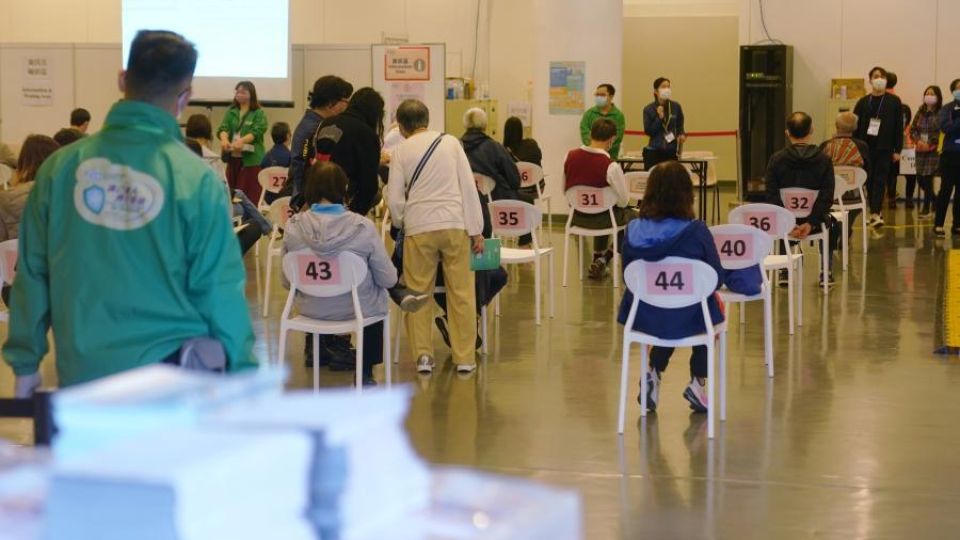January 5, 2022
Starting from Feb 24, people entering designated venues, such as restaurants and schools, will be required to present proof of COVID-19 vaccination, the Hong Kong Special Administrative Region government announced on Tuesday.
The “vaccine bubble” arrangement aims to further increase the city’s vaccination rate and provide more public health safeguards, Chief Executive Carrie Lam Cheng Yuet-ngor told reporters.
The announcement was made as Hong Kong has recorded more than 100 Omicron cases, mostly imported. Omicron is a variant of COVID-19 that has exacerbated the ongoing pandemic.
Speaking before the Executive Council meeting on Tuesday, Lam said the new arrangement will cover not only premises under the city’s Prevention and Control of Disease Regulation, such as restaurants and bars, but also schools, museums and libraries. Private offices, malls and cinemas will not be included.
Under the bubble arrangement, those who have received at least one vaccine dose can enter regulated venues by showing proof. Those who don’t offer proof will be denied entry.
The rule does not apply to people who are not eligible for vaccination, such as children aged under 12. In fact, whether such entry requirements will apply only to staff or all people entering each site is still under discussion, Lam said.
She added that for schools, the arrangement may first apply to teachers and other staff, but not students.
In terms of government buildings, authorities announced earlier that starting from mid-February, all government employees must present proof of COVID-19 vaccination.
Lam also noted that since the government revealed the bubble plan, more residents have been getting vaccinated.
On Monday, nearly 18,000 people received their first COVID-19 shots. For a while, there were only 1,000 to 2,000 people getting the jab each day, Lam said. Now, about 73 percent of the city’s population has received at least one dose of the vaccine.
Wong Kwan-yu, president of the Hong Kong Federation of Education Workers, said he believes the bubble arrangement could help increase the vaccination rate of teachers and eligible students, and promote full school resumption.
He noted that as the vaccination rate of such students has failed to meet required targets, some schools are still not able to resume full-time, face-to-face classes. The new arrangement, starting with the entry permit of school staff, could help encourage more eligible students to get jabbed if authorities determine they are required to, Wong reckoned.
Wong noted that most Hong Kong teachers have gotten at least one vaccine dose. He urged more students to get vaccinated soon to resume normal study activities.
Respiratory specialist Leong Chichiu, a member of the Medical Council of Hong Kong, said he thinks the new measure will have a positive effect on the overall inoculation rate, but he worries that there won’t be enough time for all 2 million unvaccinated Hong Kong residents to get jabbed before the bubble rules take effect.
As more details are still being discussed, he suggested the government collect more opinions to improve the arrangement.


